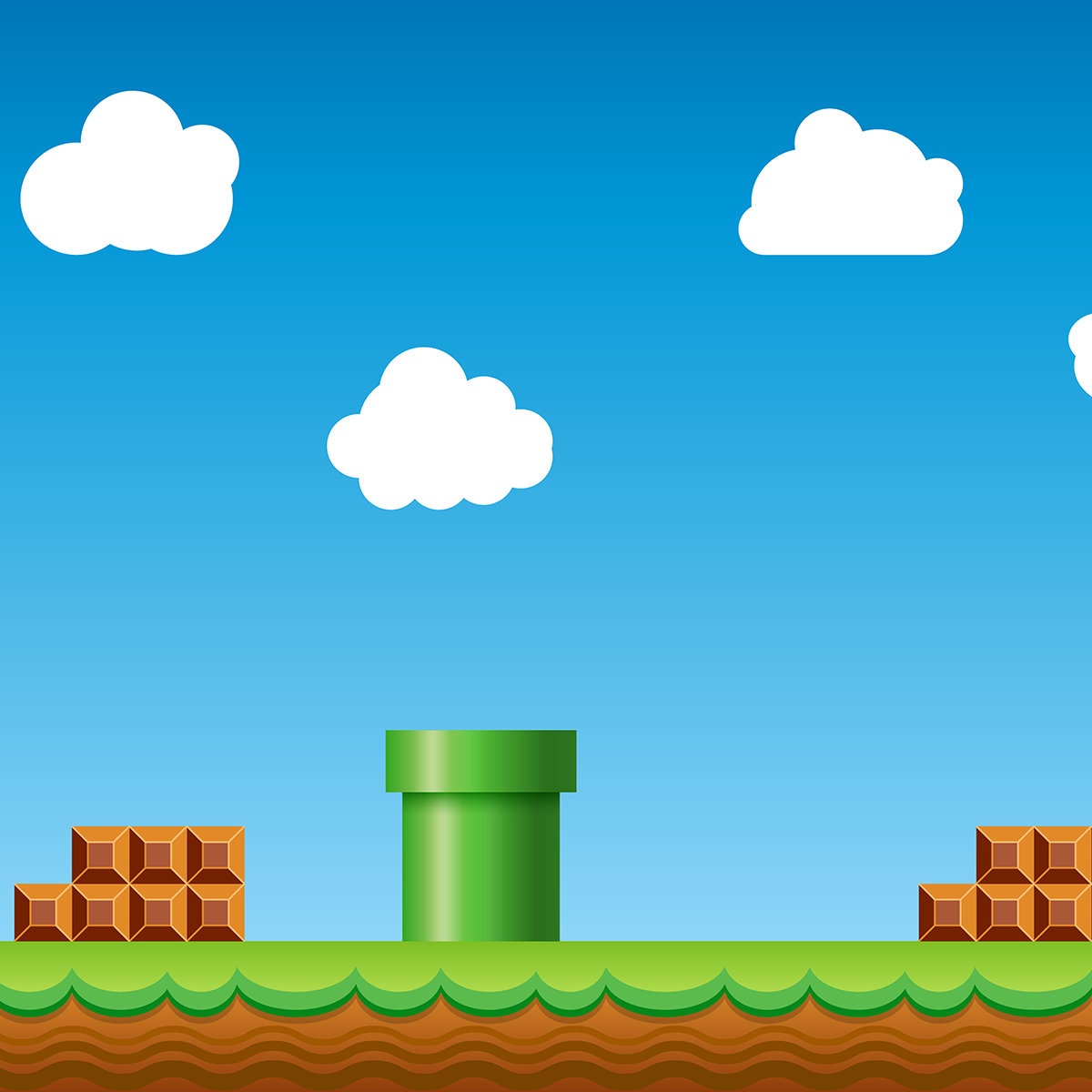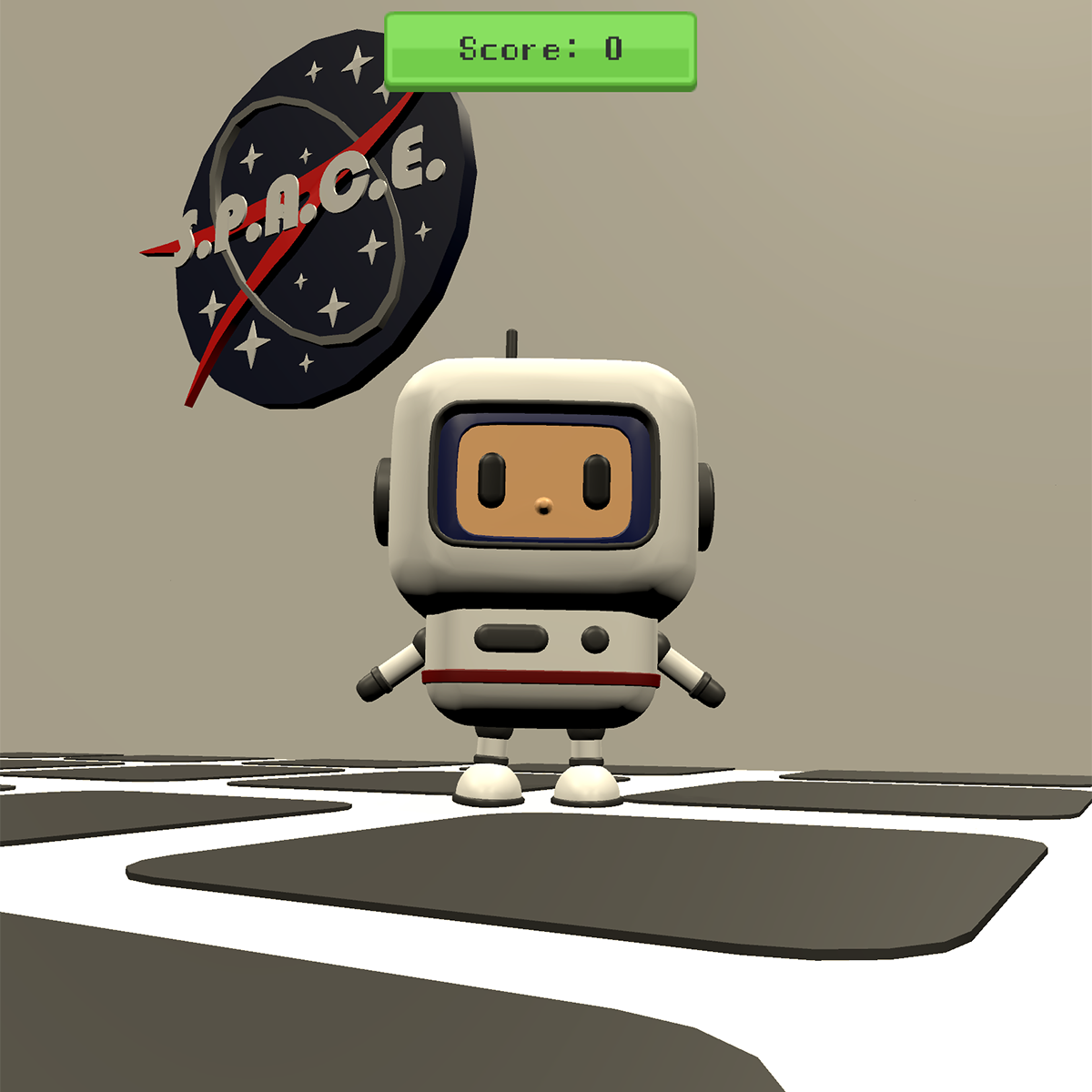Technical Game Designer
Exploring a Career as a Technical Game Designer
A Technical Game Designer (TGD) acts as a crucial link between the creative vision of game design and the practical realities of game development. They possess a unique blend of design sensibility and technical expertise, enabling them to implement, prototype, and refine gameplay systems directly within game engines. Think of them as architects who not only design the blueprint but also understand the construction materials and methods needed to build a robust and engaging player experience.
This role involves scripting gameplay mechanics, integrating assets, optimizing systems for performance, and debugging complex interactions. It's a hands-on position requiring a deep understanding of both how games feel and how they function under the hood. For those fascinated by the intricate machinery behind interactive entertainment, shaping player experiences through code and logic, the path of a Technical Game Designer offers a compelling challenge.
Working as a TGD can be incredibly rewarding. You get to see ideas transform into interactive realities, solve intricate puzzles that blend creativity with logic, and collaborate closely with diverse teams of artists, programmers, and designers. The constant evolution of game technology also means there's always something new to learn and master.
What Does a Technical Game Designer Actually Do?
Defining the Role and Its Place
A Technical Game Designer sits at the intersection of game design and programming. Unlike a pure Game Designer who might focus primarily on rules, narrative, and player experience concepts, the TGD translates these concepts into functional systems using technical tools. They differ from a Game Programmer who might build core engine features or complex backend systems; the TGD focuses specifically on implementing and tuning the gameplay itself.
Their main goal is to ensure that the intended game design is feasible, functional, and fun within the technical constraints of the project. They build prototypes, create tools for other designers, implement features like character abilities or AI behaviors, and ensure these systems run efficiently. They are essentially problem-solvers who make the creative vision playable.
The role has become increasingly vital as games grow in complexity. Early game development often saw programmers handling design implementation, but specialization became necessary. Today's TGDs use powerful game engines and scripting languages to rapidly iterate on ideas, bridging communication gaps and ensuring technical health aligns with design intent.
Bridging Creative Vision and Technical Execution
One of the primary functions of a Technical Game Designer is acting as a conduit between the design team and the programming team. Designers often conceptualize features without a full grasp of the technical hurdles, while programmers may implement systems without capturing the intended player feel. The TGD understands both perspectives.
They translate design documents into technical specifications and functional prototypes. This often involves scripting complex logic for player controls, enemy AI, user interfaces, or procedural content generation. They ensure that what sounds good on paper actually works well in the engine.
This bridging role requires strong communication skills. TGDs must clearly articulate technical limitations to designers and explain design goals to programmers. They facilitate discussions, resolve ambiguities, and ensure everyone is aligned towards the same gameplay objectives.
Prototyping and Iterating on Gameplay
Rapid prototyping is a cornerstone of the TGD's work. Before committing significant programming resources, TGDs often build rough, functional versions of new game mechanics or systems. This allows the team to test ideas quickly, gather feedback, and iterate on the design.
Using visual scripting tools (like Unreal Engine's Blueprints or Unity's Bolt) or text-based scripting languages (like C#, Lua, or Python), TGDs can quickly mock up features. Is the new jump mechanic fun? Does the proposed crafting system make sense? Prototyping provides answers faster than detailed documentation ever could.
This iterative process is crucial for finding the "fun" in a game. TGDs constantly tweak variables, adjust logic, and refine implementations based on playtesting and feedback, ensuring the final mechanics are engaging and polished.
These courses provide hands-on experience in developing game prototypes using industry-standard tools, which is essential for aspiring Technical Game Designers.
Optimizing and Debugging Gameplay Systems
Beyond implementation, TGDs play a vital role in ensuring gameplay systems perform well and are free of bugs. A creative mechanic is useless if it slows the game to a crawl or breaks under specific conditions. TGDs analyze performance, identify bottlenecks, and refactor scripts or logic for efficiency.
Debugging is another critical responsibility. When a feature doesn't work as intended, the TGD is often the first line of defense. They use debugging tools, analyze code, and test systematically to find the root cause of issues, whether it's a logic error in a script or an unexpected interaction between systems.
This requires a meticulous, analytical mindset and a good understanding of the underlying game engine architecture. They must ensure that the systems they build are not only functional and fun but also robust and stable across various platforms and scenarios.
Building the Necessary Skillset
Technical Proficiency: Programming and Engines
Strong technical skills are non-negotiable. Proficiency in at least one relevant programming or scripting language is essential. C# (primarily for Unity) and C++ (primarily for Unreal Engine) are industry standards. Knowledge of scripting languages like Python or Lua is also highly valuable, often used for tools or specific gameplay logic.
Deep familiarity with one or more major game engines, such as Unity or Unreal Engine, is crucial. This includes understanding their respective APIs, workflows, asset pipelines, performance profiling tools, and visual scripting systems (like Blueprints or Bolt). TGDs spend most of their time working directly within these engines.
Beyond basic usage, understanding engine architecture – how rendering, physics, animation, and audio systems work and interact – provides a significant advantage for optimization and complex implementations.
These books delve into the architecture and programming patterns essential for working effectively with game engines and complex systems.
Design Sensibility and Systems Thinking
While technical skills are paramount, a TGD must also possess strong game design sensibilities. They need to understand principles of player engagement, pacing, difficulty curves, and user experience. They should be able to analyze mechanics, identify potential issues, and contribute meaningfully to design discussions.
Systems thinking is particularly important. Games are complex systems of interconnected rules and mechanics. A TGD must be able to understand how different elements interact, anticipate emergent behaviors, and design systems that are robust and scalable. They need to see the bigger picture while working on individual components.
Problem-solving is a daily activity. Whether debugging a script, optimizing performance, or finding a clever way to implement a tricky design request, TGDs constantly tackle complex challenges that require both analytical and creative thinking.
This foundational book explores the core principles of game design, helping bridge the gap between technical implementation and player experience.
Collaboration and Communication
Technical Game Designers rarely work in isolation. They are key collaborators, interfacing constantly with designers, programmers, artists, producers, and QA testers. Excellent communication and teamwork skills are therefore essential.
They must be able to clearly explain technical concepts to non-technical team members and articulate design requirements to programmers. They need to provide constructive feedback, actively listen to others, and negotiate solutions that balance design goals with technical constraints.
Documentation skills are also valuable. Writing clear technical specifications, commenting code effectively, and documenting processes helps ensure that implemented systems are understandable and maintainable by others.
Educational Pathways and Training
Formal Education Routes
Many Technical Game Designers enter the field with a bachelor's degree, often in Computer Science, Software Engineering, or a specialized Game Development or Game Design program. A computer science background provides a strong foundation in programming, data structures, algorithms, and mathematics, which are highly relevant.
Specialized game development programs offer curricula tailored to the industry, including courses on game engines, graphics programming, AI, physics, and design principles. These programs often emphasize portfolio development through team-based projects, mimicking industry workflows.
Graduate degrees (Master's or PhD) in areas like Interactive Technology, Digital Media, or Computer Science with a focus on graphics, AI, or human-computer interaction can provide deeper specialization. Research in areas like procedural content generation or AI-driven design can be particularly relevant for cutting-edge technical design roles.
The Power of Online Learning and Self-Direction
While formal degrees are common, they are not the only path. The game development field often values demonstrable skill and a strong portfolio above specific credentials. Ambitious individuals can absolutely forge a path through self-directed learning, leveraging the wealth of resources available online.
Online courses offer flexible and accessible ways to acquire specific technical skills. Platforms like OpenCourser aggregate thousands of courses covering programming languages, game engines like Unity and Unreal, shader programming, physics simulation, AI implementation, and more. Learners can build a customized curriculum tailored to their interests and career goals.
These courses provide focused training on specific game development tools and techniques, ideal for supplementing formal education or building skills independently.
Building a portfolio is crucial for self-taught individuals (and valuable for formally educated ones too). Completing online courses often involves projects, but undertaking independent projects – building small games, developing tools, or contributing to open-source game projects – demonstrates initiative and practical ability. Focus on creating polished, functional examples of gameplay systems you've implemented.
Certifications from engine creators (like Unity or Epic Games) can validate specific skills, but a strong portfolio showcasing practical application usually carries more weight with employers. Use OpenCourser's Learner's Guide to discover strategies for building effective learning plans and showcasing your skills.
Building a Standout Portfolio
Regardless of your educational path, a portfolio is your most important asset when seeking a Technical Game Designer role. It's the tangible proof of your skills and design sensibilities. Your portfolio should showcase functional examples of your work, not just ideas.
Include playable prototypes or videos demonstrating mechanics you've implemented. Focus on systems that highlight both technical skill and design understanding – perhaps a unique character controller, an interesting AI behavior, a procedural generation system, or a custom gameplay tool you built.
Clearly explain your role in each project and the specific challenges you overcame. If possible, include code samples (e.g., via GitHub) or technical breakdowns of your implementations. A well-documented, polished portfolio demonstrating relevant skills is essential for landing interviews.
This book offers practical advice on navigating the production side of game development, which can inform how you present your work.
Career Path and Industry Landscape
Starting and Advancing in the Field
Entry-level positions might be titled Junior Technical Designer, Systems Designer, or sometimes Gameplay Scripter. These roles typically involve implementing features under the guidance of senior designers, debugging existing systems, and supporting the design team with technical tasks.
Progression usually leads to mid-level Technical Designer roles with more autonomy and responsibility for designing and implementing core systems. With experience, one can advance to Senior Technical Designer, Lead Technical Designer (managing a team of TGDs), or potentially specialize further in areas like AI, UI, or engine systems.
Promotion often depends on demonstrating strong technical skills, design insight, problem-solving abilities, effective collaboration, and leadership potential. Building a track record of successfully shipping complex features and contributing positively to team dynamics is key.
Salary Expectations and Market Trends
Salaries for Technical Game Designers vary based on experience, location, studio size, and project scope. Generally, compensation tends to be competitive, often aligning more closely with software engineering roles than pure design roles due to the required technical expertise. Entry-level salaries might be modest, but significant increases are possible with experience and specialization.
Geographic location plays a major role, with major game development hubs (like California, Washington, Texas in the US, or cities like Montreal and Vancouver in Canada) typically offering higher salaries but also having a higher cost of living. Resources like the U.S. Bureau of Labor Statistics provide general data for software developers, which can offer some context, although game industry specifics may differ.
The demand for skilled Technical Game Designers remains strong, driven by the complexity of modern games across PC, console, mobile, and emerging platforms like VR/AR. Studios recognize the value of individuals who can effectively bridge the design-programming gap.
Pivoting and Related Roles
The skills developed as a Technical Game Designer open doors to various other roles within and outside the games industry. Experienced TGDs might transition into roles like Lead Designer, Gameplay Programmer, or even Technical Director, overseeing the technical strategy for entire projects.
The blend of technical and design skills is also valuable in related fields like simulation development, interactive exhibits, educational software, or tools development for creative industries. Some TGDs leverage their expertise to become independent developers or consultants.
Adapting to New Frontiers
Technical Design in VR, AR, and Beyond
Emerging technologies like Virtual Reality (VR) and Augmented Reality (AR) present unique challenges and opportunities for Technical Game Designers. Designing intuitive interaction systems, optimizing for stringent performance requirements (especially in VR to avoid motion sickness), and exploring novel gameplay possibilities require specialized technical design skills.
TGDs working in these areas must grapple with new input methods, spatial design considerations, and platform-specific limitations. Understanding 3D math, rendering pipelines, and human-computer interaction principles becomes even more critical.
As these technologies mature, the demand for TGDs who can navigate their unique technical and design landscapes will likely grow, offering exciting frontiers for those willing to specialize.
Understanding rendering is crucial for optimizing performance, especially in demanding contexts like VR/AR.
AI, Procedural Generation, and Automation
Advancements in Artificial Intelligence (AI) and Procedural Content Generation (PCG) are transforming game development workflows, and Technical Game Designers are often at the forefront of implementing these techniques.
Using AI for more believable character behaviors, adaptive difficulty, or personalized player experiences requires TGDs who understand AI algorithms and can integrate them effectively into gameplay systems. Similarly, employing PCG to create vast game worlds, varied quests, or endless content requires technical expertise in designing and tuning generation algorithms.
TGDs may also develop tools and automated workflows to assist the design team, streamlining repetitive tasks and enabling faster iteration. Proficiency in these areas represents a valuable skillset for modern game development.
This book provides a comprehensive look at AI techniques specifically applied to game development.
Navigating Challenges and Pitfalls
The Creative vs. Technical Tightrope
A constant challenge for TGDs is balancing creative ambition with technical feasibility. Designers may propose features that are exciting but extremely difficult or costly to implement. Programmers may prioritize stability over nuanced design details. The TGD must navigate these tensions, finding solutions that respect both design intent and technical constraints.
This often requires negotiation, compromise, and creative problem-solving. Sometimes the TGD must push back on technically unrealistic ideas, while other times they must advocate for preserving the core feeling of a design feature during implementation.
Successfully walking this tightrope requires both strong technical judgment and a deep understanding of what makes a game enjoyable.
Team Dynamics and Communication Hurdles
Working at the intersection of multiple disciplines means TGDs often deal with differing perspectives, priorities, and communication styles. Misunderstandings between design and programming can lead to friction or flawed implementations.
Building trust and clear communication channels is vital. TGDs need empathy to understand the viewpoints of artists, designers, and programmers. Proactively clarifying requirements, documenting decisions, and facilitating cross-disciplinary discussions can mitigate many potential conflicts.
Dealing with feedback effectively, both giving and receiving, is also crucial for navigating team dynamics successfully.
Keeping Pace with Technology
The game development landscape evolves rapidly. Game engines receive major updates, new platforms emerge, and best practices change. TGDs must continuously learn to stay relevant.
This requires a commitment to ongoing professional development, whether through reading documentation, taking online courses, attending conferences like GDC (Game Developers Conference), or experimenting with new tools and techniques. Failure to keep pace can quickly render one's skills outdated.
Finding time for learning amidst project deadlines can be challenging but is essential for long-term career health in this dynamic field.
Managing Workload and Avoiding Burnout
The games industry is known for passionate individuals, but also, unfortunately, for periods of intense work ("crunch") leading up to deadlines. Technical Game Designers, being central to implementation, can often bear a heavy workload, juggling multiple features, debugging tasks, and optimization efforts.
Developing good time management skills, learning to estimate work realistically, and advocating for sustainable development practices are important. Recognizing the signs of burnout and prioritizing personal well-being is crucial for a long and healthy career in game development.
While challenges exist, proactive planning and communication within teams can help mitigate excessive crunch, though industry-wide improvements are still ongoing. Understanding burnout and its causes is a first step toward prevention.
Frequently Asked Questions
Is a programming degree absolutely required?
No, a programming degree is not an absolute requirement, but strong programming and technical skills are. Many successful TGDs come from backgrounds in game design, art, or other fields, but they invested significant time in learning scripting, engine usage, and technical problem-solving.
What matters most to employers is demonstrable ability. A strong portfolio showcasing functional, technically sound gameplay systems you've implemented often outweighs a specific degree. However, a Computer Science or related degree provides a solid theoretical foundation that is undoubtedly beneficial.
Whether formally educated or self-taught, continuous learning and practical application through projects are key.
How does TGD compensation compare to Software Engineering?
Compensation can be comparable, particularly at mid-to-senior levels in established studios. Both roles require significant technical expertise. However, variations exist based on location, studio finances, specific experience (e.g., specialization in high-demand areas like AI or graphics), and negotiation.
In some cases, pure software engineering roles outside the games industry might offer higher average salaries, but TGD roles offer the unique reward of working directly on creating interactive entertainment. Salary surveys specific to the game industry (often discussed at GDC or found through industry recruiters) can provide more targeted benchmarks.
Generally, TGDs are among the better-compensated roles within the design side of game development due to their technical skillset.
Can artists or traditional designers transition into this role?
Yes, transitioning from an art or traditional design role is possible, but requires a significant commitment to acquiring technical skills. This involves learning programming/scripting languages, mastering game engine workflows (especially visual scripting and implementation tools), and developing a systematic approach to problem-solving and debugging.
Artists might leverage their skills by focusing on technical art aspects that overlap with TGD work, like shader development or tool building. Designers need to focus on learning how to translate their ideas into functional prototypes within the engine. Building portfolio pieces demonstrating these new technical capabilities is essential for making the switch.
It's a challenging but achievable transition for those dedicated to bridging their creative background with technical execution.
What industries beyond gaming hire Technical Game Designers?
While the core focus is games, the skills are transferable. Industries using real-time simulation and interactive 3D environments value this skillset. This includes architectural visualization, automotive design interfaces, military or industrial training simulations, theme park attractions, and interactive museum exhibits.
Furthermore, the expertise in using game engines like Unity and Unreal is increasingly sought after in film (for virtual production and pre-visualization), advertising (for interactive campaigns), and education (for creating learning tools).
The ability to rapidly prototype interactive experiences and bridge design with technology is valuable in any field developing complex, user-facing software.
How important is a public portfolio?
Extremely important. For Technical Game Designers, a portfolio is often the single most critical factor in getting an interview. It's the direct evidence of your ability to implement functional, engaging gameplay systems and solve technical challenges within a game engine environment.
Your portfolio should be easily accessible online (e.g., a personal website, ArtStation, GitHub for code samples). It needs to clearly showcase your best work through videos, playable demos (if feasible), and concise descriptions of your contributions and the technologies used.
Invest time in making your portfolio polished, professional, and focused on demonstrating the core skills required for a TGD role.
Are remote work opportunities common?
Remote work became significantly more common across the tech industry, including game development, following 2020. Many studios now offer fully remote or hybrid work options for roles like Technical Game Designer, especially for experienced individuals.
However, availability varies greatly by studio culture, project needs (some highly collaborative phases might benefit from co-location), and location (some companies only hire remotely within specific states or countries). Entry-level positions might be less likely to be fully remote.
The trend towards remote work seems likely to continue, increasing flexibility, but it's always important to check the specific requirements listed in job postings. Effective communication and self-discipline are crucial for success in remote TGD roles.
The role of a Technical Game Designer offers a unique and rewarding career path for individuals passionate about both the creative and technical aspects of game development. It demands a blend of design intuition, strong programming skills, problem-solving acumen, and excellent collaboration. While challenging, it provides the opportunity to be at the heart of crafting compelling interactive experiences. With dedication to skill development and portfolio building, leveraging resources like online courses and building practical projects, aspiring TGDs can forge a successful career in this dynamic field.







